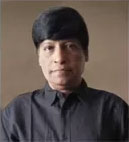
As assembly elections draw near, potential kingmakers could shape the balance of power in a closely contested environment. With alliances like the NDA and MVA eyeing victory, influential smaller parties and prominent regional figures may tip the scales in a hung assembly. These players, with their loyal voter bases and negotiating power, underscore the importance of coalition dynamics and strategic alliances in determining Maharashtra’s political future.
The 2024 Maharashtra Assembly elections are expected to be a tightly contested battleground with potential “kingmakers” from various political alliances and influential regional players. As key alliances – the National Democratic Alliance (NDA) and the Maha Vikas Aghadi (MVA) – vie for dominance, smaller parties and influential figures could tip the balance in what might be a hung assembly.
Ajit Pawar’s Nationalist Congress Party (NCP): After splitting from his uncle Sharad Pawar’s NCP, Ajit Pawar allied with the NDA, a strategic move that strengthens his hold in western Maharashtra. The NCP, particularly under Ajit’s leadership, could influence the government formation if the NDA lacks a majority, given the loyalty he commands among certain voter segments in Maharashtra’s sugar belt
Traditional strongholds
Shiv Sena Factions: Both the Eknath Shinde-led Shiv Sena (aligned with the NDA) and the Uddhav Thackeray-led Shiv Sena (aligned with MVA) hold significant sway. Eknath Shinde’s faction, with its control over traditional Shiv Sena strongholds, can contribute crucial seats to the NDA’s tally. Conversely, Uddhav Thackeray’s faction, which still commands loyalty from urban voters in Mumbai and other areas, could be instrumental in supporting the MVA
The Vanchit Bahujan Aghadi (VBA): Led by Prakash Ambedkar, the VBA advocates for Dalit and Bahujan rights, a demographic that remains underrepresented. Although the VBA isn’t contesting all seats, their influence among marginalized groups could impact the MVA’s traditional voter base and could sway the results in constituencies with large Dalit populations. Ambedkar’s political strategy aligns with MVA’s goals, potentially adding leverage to his alliance if a coalition becomes necessary
Raj Thackeray’s Maharashtra Navnirman Sena (MNS): Known for his hardline stance on issues affecting the Marathi-speaking population, Raj Thackeray’s MNS could be an unpredictable force in this election. His decisions will likely be instrumental in Mumbai and nearby regions, where his stance on local issues and anti-immigrant rhetoric resonates. MNS support could provide much-needed seats to either alliance, depending on Thackeray’s post-election strategy
Independent and small party leaders
Leaders like Ravi Rana and Bachchu Kadu, along with parties like the Rashtriya Samaj Paksha (led by Mahadev Jankar), can each bring critical seats to the table. Their rural influence, combined with their independent ideologies, makes them sought-after allies for both the NDA and MVA, especially in a fragmented assembly scenario. These leaders often command loyalty within their regions and could negotiate for influential positions in exchange for their support.
It is interesting that even Asaduddin Owaisi’s All India Majlis-e-Ittehadul Muslimeen (AIMIM) is positioning itself as a potential kingmaker in the upcoming Maharashtra Assembly elections by contesting 16 seats. The party aims to influence the election outcomes, particularly given the fragmented political landscape in the state. Their role could be significant as they may draw votes from other parties, thereby affecting the overall results.
While political leaders hold sway, communities such as the Muslim and Dalit voters are becoming significant influencers. Muslim-majority constituencies, where AIMIM has established a foothold, could swing votes, particularly if voter turnout increases in response to secular or pro-reservation appeals. Muslim and Dalit voting patterns may prompt key alliances to engage more deeply with social issues, impacting candidate choice and coalition strategies.
In conclusion, the 2024 Maharashtra Assembly elections reflect a complex interplay of traditional party lines, emerging regional interests, and smaller factions with the potential to shape the next government. Whether through direct alliances or issue-based support, these “kingmakers” will likely determine the balance of power, emphasizing the importance of coalition-building in Maharashtra’s evolving political landscape.

A Column By
Raju Korti – Editor
The Resource 24X7
A Journalist With 4 Decades of Experience With Leading Media Houses.
